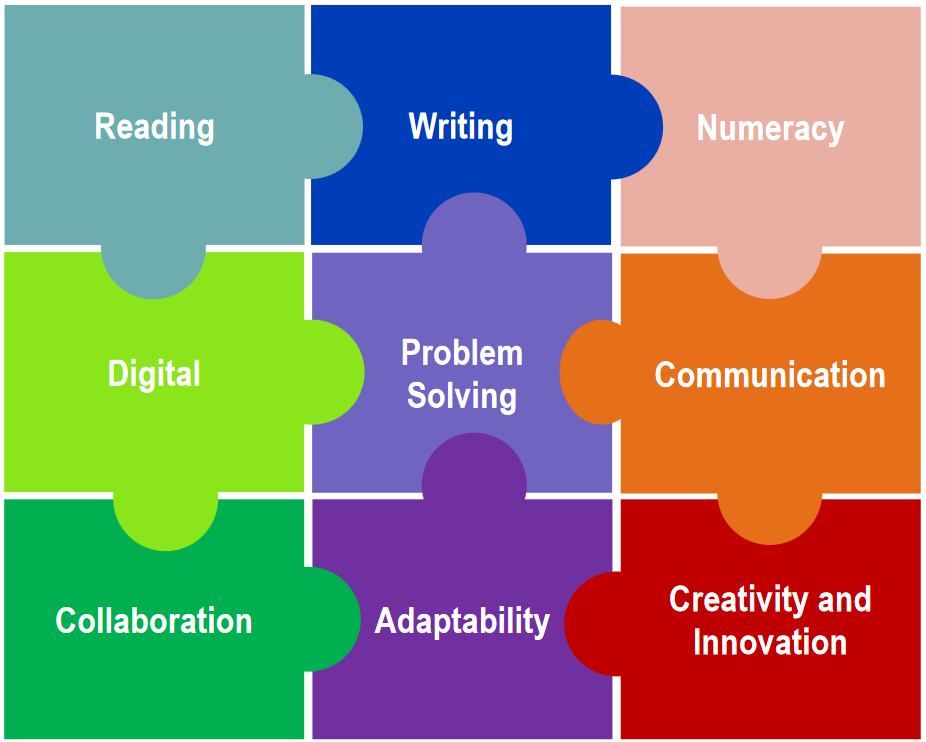8.1 Introduction
Personal Branding is one’s story.
It is who you are,
What you stand for,
The values you embrace,
And the way in which you express those values!
Wherever you are in your employment and career journey, the path always starts with YOU.
The first step to reaching your ultimate success and job satisfaction begins with a process of self-discovery. By taking the time to explore your own interests, values, skills, work preferences, and accomplishments, you will not only become more self-aware and self-assured in your career decision-making, but you will also be able to articulate your strengths to employers.
What Are Your Interests, Values, Skills, and Accomplishments?
Interests
Throughout your varied life experiences, you have the opportunity to identify and explore your likes and dislikes. Ask yourself:
- What do you enjoy doing?
- What motivates you to get out of bed in the morning?
- What jobs have you enjoyed the most and why?
Values
From an early age, you develop ideas from your family, culture, education, religion, and society as to what you believe is right and wrong, and it is these beliefs that often dictate your behaviours. Our work values are directly correlated to our job satisfaction. Consider the following work values:
Throughout your varied life experiences, you have the opportunity to identify and explore your likes and dislikes. Ask yourself?
Achievement
- Do you like being challenged and doing interesting work?
- Do you like learning and gaining new skills?
Independence
- Do you enjoy working on your own and making decisions?
Recognition
- Is it important for you to advance and have opportunities for leadership positions?
- Is it important for you to have a prestigious job?
Relationships
- Do you need to provide service to others and work with co-workers in a friendly environment?
Support
- Is it important for you to have the support of your boss to get your job done?
Working Conditions
- Are job security and good working conditions a priority for you?
- How important is it for you to be paid well and have good benefits?
- Do you need variety in your daily work tasks?
Skills
Over the course of your life, you will develop many different skills and abilities. Before diving into your job search, you will want to know which skills you have and how to describe them. There are two main types of skills that you should be able to identify:
- Technical or Industry-Specific Skills (Hard Skills): These skills are specific to your industry and the type of jobs to which you are applying.
- Identify the industry-specific skills you have learned in college by reviewing the learning outcomes section on your program’s website, as well as your course descriptions.
- Make a list of the tasks that were required in your previous jobs and list the skills that were associated with them.
- Use the OaSIS Canadian Government database (see below) to research industry-specific skills.
- Essential Employability of Transferable Skills (Soft Skills): These skills are more general and considered essential to succeed in any job or industry and include verbal and written communication, interpersonal, problem-solving, and time management skills. You develop and utilize these skills through a variety of experiences and everyday tasks.
- Identify these skills by thinking of tasks and responsibilities you performed effectively in your jobs, volunteering, school projects, and extra-curricular activities, and then identify those skills you used to perform them.
Accomplishments
Before writing your resume and cover letter and preparing for interviews, it is helpful to spend some time identifying examples of your past achievements. Start by brainstorming the tasks and activities you performed well from your past or current experience, including work, volunteer, education, academic projects, assignments, and presentations.
- Think of occasions where you recognized a problem or a situation that could have been improved, you acted or responded to it, and it resulted in recognition or a positive outcome.
- Think about your contributions in individual or group projects, recognition received from a performance review, or from coworkers, team members, customers, professors, and supervisors. Accomplishments can also include awards received or any contributions you made that had a positive impact on your workplace.
- Accomplishment statements are highly favoured by employers because they provide real examples of what you can bring to the workplace. Accomplishment statements will be discussed in Chapter 8.2 Communicating Your Skills.
The OaSIS is a great place to research skills that are most important for your specific occupation. OaSIS is a Canadian government database linking skills and other characteristics to occupations in Canada.

Image Description
The image is a flat square divided into differently coloured puzzle piece shapes. Each puzzle piece has a skill for success on it. The skills for success are:
- Reading
- Writing
- Numeracy
- Digital
- Problem-Solving
- Communication
- Collaboration
- Adaptability
- Creativity and Innovation
The Social Research and Development Corporation (SRDC) has launched its skills for success. It outlines nine skills needed to participate and thrive in learning, work and life in the Canadian workplace. Skills for success are for everyone – employers, workers, training providers, governments, and communities.
“Assess” from Be the Boss of Your Career by Lindsay Bortot and Employment Support Centre, Algonquin College is licensed under a Creative Commons Attribution-NonCommercial-ShareAlike 4.0 International License, except where otherwise noted.—Modifications: edited.

